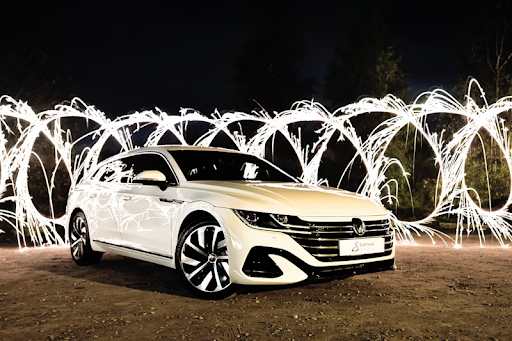
The automotive industry, ever-dynamic and innovative, is navigating a period of radical transformations, as consumer expectations evolve and pathbreaking new technologies emerge.
These are absolutely unprecedented times for the global auto industry, particularly the retail side of things, and whether you’re an industry professional, avid enthusiast, or just a consumer, things have never been this exciting.
While it’s hard to predict what exactly automobiles and the broader industry will look like by the end of this decade, we can make some predictions based on the trends that have since come to light. In this article, we uncover four trends that are shaping the future of auto retail, and what they mean for you.
1. Digital-First Car Buying Experience
The days of spending hours at an auto dealership, exploring cars, weighing your options, and then spending a couple of hours more on documentation and formalities are coming to an end.
The future of car buying involves online platforms that make it easier to browse, compare, customize, and even purchase a car without having to step foot in a showroom or dealership. With virtual reality (VR) and augmented reality (AR), potential buyers can experience everything that a car has to offer from the comfort of their homes.
With financial services now keeping pace with auto retail, applying for financing, getting approved, and having the amount disbursed usually doesn’t take more than a few minutes. This essentially makes buying a car as easy as buying furniture for your house.
2. Subscription Services & Flexible Ownership
The concept of flexibility is taking the automotive retail world by storm. With consumer preferences shifting towards more adaptable lifestyles, the industry is dialing up its game with innovative subscription services.
Imagine having the freedom to drive a sporty convertible in the summer and switching to a robust SUV for winter treks – all under one flexible subscription model.
These services are breaking the mold of traditional car ownership. No more long-term commitments or hefty down payments. Instead, customers pay a single monthly fee that covers everything from maintenance to insurance, providing a hassle-free car ownership experience.
What’s even more compelling is how this trend is catching on with businesses. Companies are now turning to car subscriptions as a smart way to manage their fleets.
3. Personalized Accessories
Personalization has always been at the heart of consumerism, and the automotive industry has recently started trending this wave, with a focus on customizable and personalized accessories.
Auto dealerships and retailers are seeing immense potential in offering high-margin personalized accessories to customers, in addition to selling automobiles. This includes everything from aesthetic enhancements such as custom wraps and rims to functional gadgets such as screens, in-car coffee makers, and more.
By recognizing the desire for uniqueness in every vehicle, many online platforms including AutoNation, are making significant strides. They offer an extensive selection of parts and accessories for a variety of leading automobile brands. The push towards individuality in our vehicles is a trend that auto retailers and dealers are capitalizing on, understanding that driving a car that’s identical to thousands of others isn’t appealing.
4. Sustainability & Electric Vehicles (EVs)
Sustainability is a major force driving change in many sectors, and automotive retail is no exception. The surge in environmental awareness has propelled the demand for electric vehicles (EVs) to unprecedented heights. As a result, dealerships are rapidly adapting to accommodate this shift.
From sales strategies and showroom designs to service training and marketing campaigns, every aspect of automotive retail is evolving to highlight sustainability. Moreover, with governments around the world offering incentives for EV purchases, dealerships are not just selling a car; they’re selling a commitment to a cleaner planet.
Additionally, this focus on sustainability extends beyond just electric vehicles. Many dealerships are also adopting green practices within their operations, such as using energy-efficient lighting and solar panels, recycling vehicle parts, and even offering carbon offset programs.
Looking Ahead
The automotive retail industry is on a fast track, driven by digital innovation, a shift towards flexible consumption models, personalization, and a strong commitment to sustainability. As we look ahead, these trends suggest a future where buying and owning a car is more aligned with the personal values and lifestyles of consumers.
The sector’s ability to adapt and embrace these changes will not only determine its competitiveness but also its relevance in a rapidly evolving world. For automotive retailers, the road ahead is clear: innovate and personalize, or risk being left behind.
Interesting Related Article: “5 Trends Shaping The Car Parking Industry Globally“
